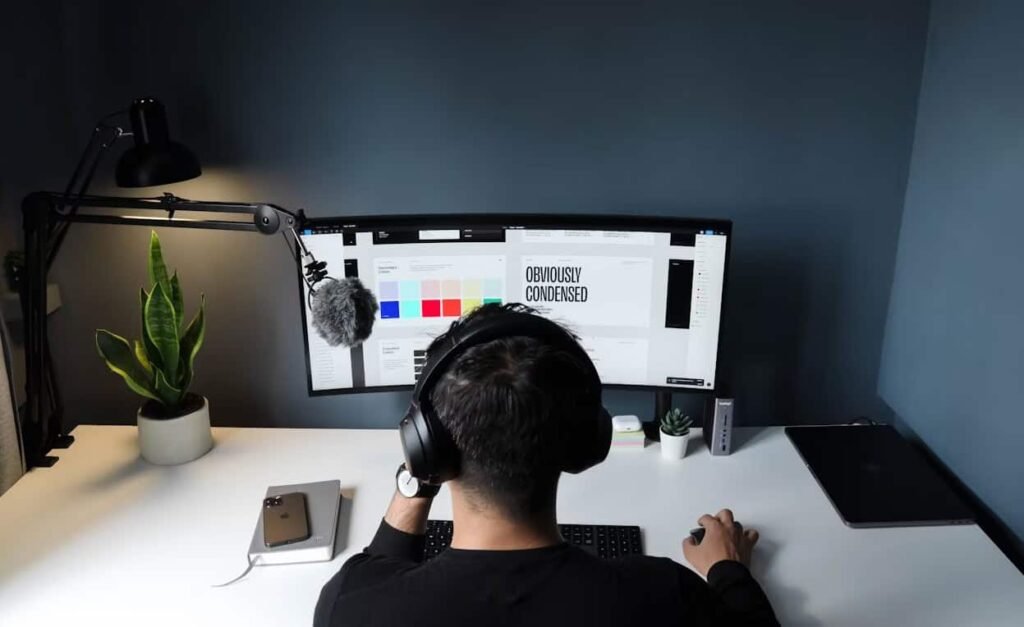For many international students in the USA, studying abroad brings exciting opportunities—but also significant financial challenges. Between tuition fees, living costs, and visa restrictions on working hours, finding extra income can feel daunting. That’s where smart, legal side hustles and income strategies come in.
Whether you’re looking to build financial independence, improve your skills, or ease the pressure of everyday expenses, there are plenty of ways to make money as an international student. The key is to understand your legal boundaries, set up your financial foundation, and explore flexible opportunities that fit your schedule.
Bottom Line Up Front
Here’s a quick summary of the best ways to earn and manage money as an international student in the USA:
- Start with legal & financial basics — Open a student bank account, build credit responsibly, and understand rental options.
- Use on-campus opportunities — Become a student ambassador, work part-time within university limits, or apply for paid internships and placements.
- Leverage digital platforms—From freelancing to affiliate marketing, blogging, or selling digital assets, there are multiple online income streams.
- Monetize your creativity — Social media, the TikTok creator fund, and micro-influencer deals are increasingly accessible.
- Tap into quick cash options — Surveys, textbook resale, transcribing, switching providers, or earning interest offer easy supplemental income.
- Explore entrepreneurship — Launching a small business, selling handmade goods, or flipping refurbished items can lead to steady growth.
- Plan for the long term — Building credit history and financial stability today can support future goals like renting, credit card approval, or even permanent residency.

Legal & Financial Foundations for International Students
Before diving into side hustles, it’s essential to establish a strong financial foundation. As an international student in the USA, understanding how to set up a bank account, build credit, and secure housing will make it much easier to manage your income and expenses.
Opening a Bank Account
Opening a bank account is often the first step to managing your finances in the USA. Many banks offer student-friendly accounts with low fees and simple requirements. To open a student bank account, you’ll usually need:
- A valid passport and student visa
- Your I-20 form or proof of enrollment
- A U.S. address and contact details
- A Social Security Number (SSN) or Individual Taxpayer Identification Number (ITIN)
Once approved, you’ll receive a debit card and can manage your funds through online banking. Some students also set up PayPal or similar services to make online transactions easier.
Understanding how to open a bank account as an international student is crucial because it allows you to receive payments, pay bills, and build your financial history safely.
Building Credit as an International Student
Establishing credit in the USA is a key step toward financial independence. Many banks offer student credit cards that are easier to qualify for, even if you don’t have an existing credit history. To increase your chances of getting approved for a student credit card, make sure you:
- Provide proof of enrollment and identification documents
- Link your student bank account to demonstrate financial activity
- Consider applying for a secured credit card if a regular one isn’t available
Using your credit card responsibly—making payments on time and keeping balances low—helps build a strong credit score. A solid credit history can make it easier to rent an apartment, secure loans, and even apply for future immigration benefits like a green card.
Establishing and maintaining a healthy credit score is essential. The Consumer Financial Protection Bureau’s credit guide explains how credit reports and scores work and how students can build credit responsibly.
Renting Accommodation
Understanding how to rent an apartment as an international student is another important financial step. Many landlords require a guarantor, rental history, or proof of income, which can be challenging for new arrivals. Common requirements include:
- A valid lease agreement
- Copies of your passport and visa
- Bank statements or proof of funds
- A local guarantor (sometimes the university can help provide alternatives)
If you don’t have a credit history, you may need to pay a larger security deposit or prepay several months of rent upfront. Research student housing options, shared apartments, or on-campus accommodation to find affordable solutions.
Knowing how international students rent apartments in the USA can prevent unexpected costs and make your transition much smoother.
Practical Side Hustles to Earn Money
Once your financial foundation is set, it’s time to explore practical ways to make money as an international student in the USA. Depending on your visa type, you may be allowed to work on-campus or, with proper authorization, engage in off-campus employment. Understanding the rules is essential to stay compliant while earning extra income.
On-Campus Opportunities
On-campus jobs are one of the most accessible income sources for international students, as they usually comply with student visa regulations. A popular option is becoming a student ambassador. In this role, you can participate in open days and graduation events, give campus tours, and support university event teams.
Other opportunities include working with course enquiry teams, answering phone calls, and replying to emails, or helping with photography, video shoots, and student blogs. Most universities allow you to choose shifts that fit your class schedule, giving you flexibility while gaining valuable work experience.
Off-Campus Part-Time Work
For students with work authorization (such as CPT or OPT), part-time jobs off campus can provide steady income and practical experience. Common roles include working in shops, restaurants, pubs, and customer service positions.
Choosing a role related to your career goals can also strengthen your CV. For example, working as a receptionist at a vet surgery can be ideal if you plan to enter veterinary medicine.
Universities often host job fairs during Welcome Week, where local employers attend. Platforms like CareerEDGE and Handshake list numerous part-time opportunities tailored for students.
This is a practical way to make money as an international student in the USA, while building relevant professional experience.
Freelancing
Freelancing is another powerful way for international students to earn extra income—especially if your skills align with your degree. In-demand freelance services include writing, graphic design, editing, and coding, all of which can be offered remotely through freelancing platforms.
Freelancing allows you to build a professional portfolio, gain practical industry exposure, and work with clients from around the world—all while maintaining flexibility around your studies. It’s also a great way to test your entrepreneurial abilities and build connections that may benefit you after graduation.

Internships and Placements
Another excellent side hustle is participating in paid internships or placements. Many degree programs offer an optional placement year, allowing you to work in your chosen industry full-time for a year. This not only helps you earn a stable income but also gives you real-world work experience and a competitive edge in the job market after graduation.
Some universities support students in finding placements with major companies such as BAE, McLaren, and Boohoo. Alternatively, summer internships offer shorter but valuable experiences, helping you earn extra money during the summer holidays while gaining industry exposure.
To understand the full requirements for on-campus and off-campus work authorization, refer to the official USCIS F-1 student employment guidelines.
Tutoring
Tutoring is a flexible and rewarding side hustle that allows international students to earn money while helping others succeed academically. You can teach core subjects like mathematics, English, or sciences, or focus on specialized topics you’re passionate about.
Tutoring can be done in person or through online platforms, enabling you to choose your own hours and set your rates. This flexibility is ideal for students balancing classes and part-time work. Tutoring also helps develop communication skills, enhances your subject mastery, and strengthens your CV for future opportunities.
Digital Income Streams
Thanks to the rise of online platforms and social media, there are now more ways than ever for international students to make money online while studying in the USA. These options are especially useful because they offer flexible schedules, low entry barriers, and the potential to grow into long-term income sources.
Social Media & Content Creation
You don’t need millions of followers to start earning through social media. Many brands prefer to work with micro-influencers, who often have higher engagement rates and stronger authentic connections with their audience.
There are several ways to monetize your presence:
- Affiliate marketing: Join programs like Amazon Associates or LTK, then share affiliate links in your posts. You’ll earn a commission for every sale generated through your link.
- Payment in kind: Brands may offer free products, experiences, or meals in exchange for content. Always set clear terms for these collaborations.
- Paid advertisements: Companies may pay you to post sponsored content. Even with a modest following, strong engagement statistics can make your profile valuable.
- TikTok Creator Fund: If you have at least 10,000 followers and 100,000 views in the last 30 days, you may qualify to earn based on video performance
When engaging in brand collaborations, make sure to follow Advertising Standards Agency (ASA) guidelines and clearly mark posts as ads.
Blogging and Vlogging
Starting a blog or vlog can be a powerful long-term income strategy. Many international students create YouTube channels, write blogs about their study abroad experiences, or post travel tips, student life advice, or niche educational content.
There are several monetization methods:
- Advertising revenue through platforms like the YouTube Partner Program (requires 1,000 subscribers and 4,000 watch hours).
- Affiliate links placed within your blog posts or video descriptions.
- Brand collaborations and sponsorships once you build a loyal audience.
Consistent posting of high-quality, engaging content is key to building traffic and creating sustainable digital income.
Selling Digital Assets
Creating and selling digital assets is one of the best ways to generate passive income. A digital asset can include anything from PDF guides and meal plans to art prints, templates, or educational resources.
You can sell these assets on platforms like Etsy, your own website, or dedicated marketplaces. Once the product is uploaded, it can be purchased repeatedly without additional work. Many students create downloadable content related to study tips, language learning, fitness, or design resources, turning their skills into income.
Selling Stock Photos
If you’re a skilled photographer, selling stock photos can provide another digital income stream. You can build a portfolio of high-quality images and upload them to stock photography platforms like Shutterstock, Adobe Stock, or iStock.
Images of student life, campus scenes, lifestyle shots, and diverse subjects are always in demand. Although this may not generate immediate high earnings, a strong, diverse portfolio can bring in passive income over time.
Low-Barrier Quick Cash Options
Not every international student has the time or resources to build a long-term side hustle right away. Fortunately, there are several low-barrier, fast-earning opportunities that can help you make extra money with minimal setup. These are perfect for students who want quick results without committing to ongoing projects.
Paid Surveys
Completing paid surveys online is one of the simplest ways to earn extra cash. Many survey companies allow you to create a profile and match you with relevant questionnaires. Each survey typically takes a few minutes and pays a small amount—usually credited through PayPal.
Although it won’t replace a job, this method is flexible and can fit around your study schedule. For international students, it’s a convenient way to earn supplementary income without needing complex legal documentation.
Transcribing
If you have strong listening and typing skills, transcribing can be a valuable quick cash option. Many businesses and content creators hire students to produce written transcripts of interviews, videos, or customer service calls.
Unlike note-taking in class, transcription requires capturing every spoken word accurately. It can be done remotely, making it ideal for students who prefer working from home. Platforms offering transcription gigs often pay per audio minute, and with practice, you can increase both your speed and earnings.
Selling Unwanted Items
Selling unwanted items is a practical way to make instant money and declutter your space. Students often sell old clothes, textbooks, homeware, and electronics on platforms like Vinted, Depop, and eBay or through Facebook Marketplace.
You can also try local car boot sales to sell multiple items at once. While prices may be lower than online sales, it’s a fast way to generate cash in a single day. Some students even sell directly in course groups or WhatsApp communities, which can lead to quick, hassle-free sales.
Switching Providers and Earning Interest
Some banks, energy providers, or phone companies offer cash incentives when you switch to their services. For example, switching your bank account could give you up to £200. It’s important to calculate whether this move makes financial sense—consider any increased monthly costs against the upfront bonus.
In addition, putting your savings in a high-interest account allows your money to earn interest passively. For example, £1,000 at a 5% annual interest rate becomes £1,050 after one year. By shopping around for the best rates and switching accounts when needed, you can increase your returns without extra effort.
Entrepreneurial Options
For international students who want to take greater control of their income, entrepreneurship offers exciting opportunities. Starting a business or offering unique services can provide not only financial rewards but also valuable real-world experience that can strengthen your CV and future career prospects. With the right planning, these ventures can be managed alongside your studies.
Starting a Small Business
Launching a small business while studying can be an excellent way to build long-term income. This might involve selling handmade goods, offering a service, or developing a digital product. Many students create businesses around their skills or hobbies, such as art, jewelry making, baking, or fitness coaching.
Before starting, it’s essential to create a clear business plan, set goals, and understand any visa restrictions on self-employment. While it may take time to become profitable, this path allows you to develop entrepreneurial skills and potentially scale the business even after graduation.
Selling Handmade or Creative Products
If you’re skilled in making crafts, art, accessories, or other creative goods, platforms like Etsy, Amazon, and eBay can help you reach customers worldwide. You can also sell through local markets, student fairs, or pop-up events near your campus.
Promoting your products through social media and word of mouth is an effective way to grow awareness. With consistent effort, selling handmade goods can evolve from a casual income stream into a sustainable business model.
Flipping and Repairing Items
Flipping involves buying low-cost items, fixing or refurbishing them, and then reselling them at a higher price. Common categories include electronics, furniture, jewelry, and clothing. If you have basic repair skills or a good eye for value, this can become a profitable side hustle with minimal upfront investment.
You can advertise your services to other students who need repairs or source items from thrift stores and online marketplaces. Not only does this help you earn money, but it also promotes sustainability by giving products a second life.
Offering Specialized Services
Many international students have unique skills or cultural knowledge that can be turned into valuable services. Examples include language tutoring, cultural consulting, digital marketing, photography, or event planning. By packaging your expertise and offering it to local communities or online clients, you can build a strong reputation and generate consistent income.
Promoting your services through university networks, LinkedIn, social platforms, and freelance marketplaces can help attract clients. Over time, this approach can grow into a formal business or freelance brand.
Long-Term Integration in the U.S.
For many international students, studying in the USA isn’t just about education—it’s also about building a stable financial future and laying the groundwork for potential long-term residency. Understanding how to strengthen your financial profile and navigate immigration pathways can help you transition smoothly from student life to professional life.
Building a Strong Financial Profile
A solid financial history plays a critical role in long-term integration. Establishing and maintaining a bank account, building credit, and demonstrating responsible financial behavior can make everyday life easier and open future opportunities.
A good credit score can help you rent apartments, qualify for student credit cards, and eventually apply for loans or mortgages. Paying bills on time, keeping credit card balances low, and regularly reviewing your credit report are essential practices. Over time, this responsible financial behavior builds trust with U.S. institutions and supports future visa or green card applications.
Understanding Pathways to Permanent Residency
Some students eventually consider applying for a green card to live and work permanently in the USA. While this process can be complex, understanding your options early can help you plan effectively. Common pathways include:
- Employment-based visas such as H-1B, which may be sponsored by U.S. employers after graduation.
- Transitioning from F-1 status to Optional Practical Training (OPT), which allows you to work in your field of study for up to 12 months (or longer for STEM OPT extensions).
- Securing employer sponsorship during OPT that leads to a more permanent visa.
- Family-based immigration routes, where applicable.
While earning money as a student doesn’t directly lead to residency, maintaining legal status, building financial stability, and demonstrating employment potential can strengthen future applications.
Linking Side Hustles to Career Goals
The side hustles you pursue as a student can contribute to your career trajectory in the USA. For example, internships and placements with reputable companies can lead to full-time job offers that support visa sponsorship.
Similarly, building a successful freelancing profile or small business can demonstrate initiative, entrepreneurial skill, and adaptability—qualities valued in the U.S. job market. Strategically selecting income streams that align with your long-term goals ensures that your efforts pay off beyond graduation.
Legal and Tax Considerations
As you plan for the future, it’s important to understand U.S. tax obligations and legal restrictions that apply to international students. Earning income—whether through employment, freelancing, or digital platforms—may require filing tax returns with the IRS.
Staying compliant with visa conditions, understanding work authorization, and keeping accurate financial records will prevent issues during immigration applications or status adjustments. Many universities offer tax workshops or connect students with legal advisors who can guide you through this process.
While most federal aid is limited, it’s still worth reviewing the U.S. Department of Education’s page on financial aid for international students to understand your options clearly.

Conclusion
Navigating financial life as an international student in the USA requires strategy, awareness, and a willingness to explore different income streams. From setting up a solid financial foundation with a bank account, credit, and housing, to leveraging side hustles, digital platforms, and entrepreneurial ventures, students have more opportunities than ever to earn and grow financially.
The key is to ensure every activity complies with visa regulations and supports your long-term goals. Whether through on-campus roles, internships, freelancing, social media, or low-barrier income methods, you can create a stable and sustainable financial base during your studies.
By aligning your efforts with your career trajectory, building a strong credit history, and understanding residency pathways, you position yourself for future success—not just as a student, but as a financially empowered individual in the USA.
Frequently Asked Questions
How can an international student open a bank account in the USA?
To open a bank account as an international student, you typically need your passport, student visa, I-20 form, and a U.S. address. Most banks will also ask for a Social Security Number (SSN) or Individual Taxpayer Identification Number (ITIN). If you don’t have an SSN, some banks offer student-friendly accounts that accept alternative identification. Opening a checking account allows you to receive payments and manage daily expenses, while a savings account can help build your financial base.
How can international students build credit in the USA?
Building credit starts with applying for a student credit card, secured credit card, or using financial products linked to your student bank account. Make on-time payments, keep balances low, and regularly check your credit report. Over time, this creates a credit history that’s essential for renting apartments, applying for loans, or securing better financial products in the future.
What are the best ways for international students to make money in the USA?
Some of the most effective ways to make money as an international student include:
- On-campus jobs, such as student ambassador roles or positions in university departments.
- Internships and placements that provide both income and career experience.
- Freelancing or tutoring through online platforms.
- Social media monetization, affiliate marketing, or creating digital assets.
- Low-barrier methods like paid surveys, selling unwanted items, or transcribing.
- Always ensure you comply with visa regulations when pursuing any paid activity.
Can international students rent apartments in the USA without a credit history?
Yes, but it may require extra steps. Many landlords ask for a guarantor, higher security deposit, or several months of rent upfront if you lack credit history. Providing bank statements, proof of enrollment, or using university housing services can help secure accommodation. Research student housing, shared apartments, and on-campus residences for more accessible options.
How can an international student get a credit card in the USA?
International students can apply for student credit cards through their bank, or opt for a secured credit card that uses a cash deposit as collateral. Some financial institutions offer special programs for students without credit history, especially if you already have a bank account with them. Providing proper identification and proof of student status is usually required.
How can an international student work legally in the USA?
Under F-1 visa regulations, students can work on campus for up to 20 hours per week during semesters. To work off campus, you typically need authorization through Curricular Practical Training (CPT) or Optional Practical Training (OPT). CPT is tied to your degree program, while OPT allows temporary work in your field of study after graduation. Always check with your Designated School Official (DSO) before starting any job.
What are some long-term financial strategies for international students?
Long-term strategies include building a strong credit history, maintaining a savings account, filing taxes correctly, and strategically choosing side hustles that align with future career goals. Planning for permanent residency pathways, like H-1B visas or green cards, and demonstrating financial stability can support your future immigration applications.
Related Reading
If you’re planning your next financial moves, these in-depth guides can help you build a stronger foundation and explore new income opportunities as a student:
- Online Jobs for Teens—Explore flexible, beginner-friendly online jobs that students can start with little to no upfront investment.
- Budgeting as a Student—Learn practical budgeting techniques tailored for student life.
- Budgeting for Life After High School—Transition smoothly from school to adulthood with smart financial planning.
- How to Save for an Apartment at 18 — A step-by-step guide to building your first rental budget early.
- How to Save Money for a House While Renting—Discover realistic saving strategies while managing monthly rent.
- Budgeting Tips for Freelancers—Ideal for students earning through freelancing and side hustles.
- How to Invest in Notes—An introductory guide to an alternative investment strategy.
These resources complement what you’ve learned in this article, helping you plan, save, and grow your income effectively as an international student.
Disclaimer
The information provided in this article is for general informational purposes only and does not constitute financial, legal, or immigration advice. Regulations and requirements for international students in the USA, including visa conditions, work authorization, and financial products, may vary by individual circumstances and can change over time.
Readers are strongly encouraged to consult their Designated School Official (DSO), immigration attorney, or relevant government agencies such as USCIS for guidance specific to their situation. Always verify information with official sources before making financial or legal decisions.


1 thought on “How to Make Money as an International Student”